Three news stories summarized & contextualized by analytic journalist Colin Wright.
'Worst floods in decades' hit Kazakhstan and Russia
Summary: Worse than usual seasonal flooding in parts of northern Kazakhstan have led to the evacuation of tens of thousands of people, and similarly outsized flooding across the border in Russia has halted the operations of an oil refinery in Orsk.
Context: This part of the continent often experiences flooding this time of year, but higher than usual volumes of melting snow have amplified these floods so that existing systems and infrastructure that help locals cope with them are insufficient to the task, and officials in both countries are warning that things could get worse in the coming days—more evacuations necessary and more damage caused—though they expect water levels to stabilize sometime around or shortly after April 20.
—BBC News
TSMC gets $11.6 billion in US grants and loans for three chip fabs
Summary: The world’s largest computer chip manufacturer, Taiwan Semiconductor Manufacturing Co, or TSMC, is set to receive about $6.6 billion in grants and up to $5 billion in loans to build three chip fabrication facilities in Arizona, supporting a planned investment of more than $65 billion by TSMC in the region.
Context: This is part of a larger collection of grants and loans being divvied out by the US government for chip-related infrastructure, most of which has thus far gone to US-chipmaker Intel, but TSMC is a vital component of the global chip industry, and the majority of its manufacturing capacity is currently located in Taiwan, which has become perceptually precarious of late, due to China’s insistence that it will recapture what it perceives to be a portion of its territory in rebellion; there’s a political component to this, too, as Arizona is one of the swing states President Biden hopes to secure before this November’s election, but this sort of investment is also fundamental to the current US government priority of bringing manufacturing capacity back to the States, rather than relying on China (and other nations) to make all the things US companies design and sell.
—Bloomberg
Swiss women win landmark climate case at Europe top human rights court
Summary: The European Court of Human Rights has ruled in favor of a group of Swiss women who alleged the Swiss government had failed to do enough to combat climate change, failing to meet its own emissions-cutting targets, and had thus violated the human rights of its citizens.
Context: This group of more than 2,000 Swiss women, all over the age of 64, intended to set a precedent with this case, which very well may happen, though this same court recently rejected two other, similar cases on procedural grounds, so while this could make future, similar cases across the EU easier—including six others with this court that were put on hold, pending this case’s ruling—those dismissed cases suggest that this probably won’t become a free-for-all, and likely doesn’t represent a sure-fire way to achieve climate-related outcomes outside the typical, political path for such things.
—Reuters
According to polls, wealthier, less-populated portions of India are less likely to support Prime Minister Modi than the more densely populated, impoverished north—a portion of the country where his Hindu nationalist messaging seems to be more reliably landing with voters.
—Bloomberg
80 to 116
Acceptable tempo range (in beats per minute) for music, according to a new law established by the Russian republic of Chechnya.
This law, according to Chechnya’s Minister of Culture, is meant to ensure music conforms to “the Chechen mentality,” and is intended to keep perceptually “Western” music out, as part of a larger, tradition-focused cultural agenda.
—Semafor

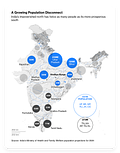




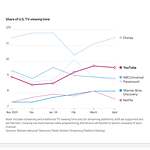
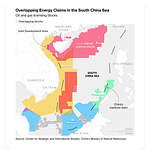
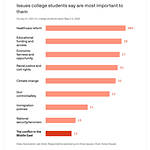
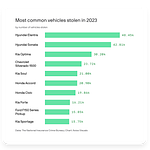




One Sentence News / April 10, 2024